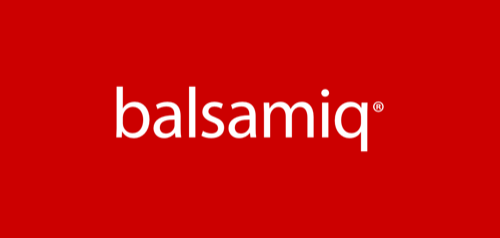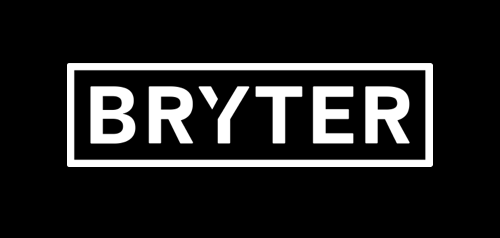Transcript
Welcome, everyone to You Got This, effective one-on-ones. I'm here to talk to you about something close to my heart, and that is one-on-ones. It's been quite close to my heart because it has taken me many, many years to actually start using they might them as the tool they are meant to be. So I started having them ten years ago when I started having internships and later when I became a full-time employee.
I remember at the beginning I was completely at a loss because people were just saying, "Oh, okay, these one-on-ones are for you. Go and talk to your manager about what is important to you." And I would sit there and look at them and say, great, so now I have half an hour to talk to this person, and I have no idea what to start with. So, I used to dread them a lot, and it took me a long time to feel comfortable with them, and actually know how to use them.
Today, I hope to give you the knowledge so that you can start to have effective one-on-ones quicker than I was able to. If you're a manager and you're watching this, feel free to continue watching, because I think figuring out how reports, or your reports might like at this, will allow you to help them make these more effective as well. So the first thing I will start with is by talking about some misconception s, or some things that essentially one-on-ones are most often used for. So what are one-on-ones not supposed to be?
The first thing they're not supposed to be is status update meetings. That has happened to me so many times. Your manager will just go into the meeting, be like, "How is that project going?" "Do we need to go to talk to this other team a bit more? What do we need to do next? What are your next steps?" None of this is what the one-on-one is supposed to be about. Why is that bad? It is because you don't get to talk about what is actually important in the one-on-one. We will talk about exactly what that is in a bit.
Now just know, if that is happening, then you probably need more meetings to talk about the project that the manager was trying to talk about in your one-to-one. Yes, - the thing that one-on-ones are supposed to be is time for the project work, not just talking about what the status of the project is, but then actually doing the work, so pulling up a presentation, and then working on it together, or doing actual code review, things like that. That is not what one-on-ones are supposed to be about.
If you find yourself doing this, schedule yourself more dedicated project time, because one-on-ones are supposed to be for YOU, and that is the thing that I said kind of scared me when I started having them been because people kept saying this, and I really [inaudible]. So what I'm going to do now is I will give you ten things that you can talk about in your one-on-one that should make it easier to pass the time and actually gain the one-on-ones that you're having. If you have the one-on-one, you have it every week, two weeks, half an hour.
With these ten questions, if you give each yes three minutes, you should generally either run over time, or comfortably make that time.
The first thing that you can talk about is asking questions, like, "Why did this thing happen last Tuesday?" Or, "I noticed tension in this meeting that we had on Monday. Is there some conflict going on between our teams? Do you know what that is about? Can you give me more background?" Anything that happened in the past week, the past month, whatever, whatever you come across, you looked at, "Oh, I wondered what is going on", all of those are perfectly valid questions to ask your manager.
And, so what people often do is they go to talk to their peers instead of talking to their manager. And the peers might have the information or they may not, but quite often, people feel a bit shy about asking the manager, especially if it is about a slightly touchier subject, but your manager is there to answer these sorts of questions as well. Take the manager into it and ask the questions you have because that will give you the most value.
The next thing that you can do, an obvious one that people will always tell you, is give and receive feedback. There are entire talks about how to give and receive specific and constructive feedback. Examples of this include might be when you want to receive feedback, something like, "Did I manage X meeting last week well?" Or, "Did I do well on this project? I think it went well, but maybe you can tell me whether I'm right or wrong." Or if you felt something didn't go well, "What could I have done to make that go better?" Something that I got as feedback once that helped me was I couldn't get to a good place with a blog post review. The person that I was reviewing the content for just kept on arguing with me about feedback.
In the end, after multiple days, we published the blog post, and they went to a manager and said generally this doesn't take this long. What could I have done better. He gave me good feedback around how I could have time-boxed things better, and that is the sort of feedback we're looking for, where you can then actually improve how you do your regular day's work. You can also give feedback to your manager, or you can give feedback about other people.
So maybe this is something that you noticed about a different team and how they interact with you. You say, "Hey, I'm worried about how they keep pushing work to - how this other team keeps pushing work towards us. I think maybe they don't understand how to interact with us well, and can we do something to make that more clear?" That is valid feedback to give and something that they can concentrate on fixing.
If your manager, for example, keeps being late to a meeting, or someone else keeps being late, that is something you can address, and say, "Hey, do we need to move this meeting because I noticed you're often late for the past few times, maybe by five or ten minutes. Would it help if we shifted this meeting?" Try to keep things constructive, and do give the feedback that you feel you need to give, otherwise the problems will fester, sue might think the managers are aware of problems that you see. That quite often managers are there ... these things and if you or else doesn't raise them, they can't fix these things.
Right, that is number 2. Number 3, on a more happier note, you can talk about things that are going well. For example, "I'm happy with how project X is going. I love working on it." That gives your manager built of information about what you enjoy working on, what you feel happy about, and then they can assign you more work that is like that, or they just know what you enjoy doing. That's good to know how things are going.
Equally, you can talk about things that are not going well. So, "Hey, the work for project X was dropped on us with no warning last week and I didn't feel I was able to say no. Why didn't we have this? How can we avoid this in the future." And to point out the crab on this: this comes from one of my partner's former managers used this as something like what do we feel crabby about? I thought that was very cute, so in my one-on-one talks, I use that emoji when talking about these things. The next thing that you can talk to your manager about is team priorities. So, generally teams had more things to do, they have time for, and in most cases it is important to know what your team priorities are.
These also should be discussed in team meetings, that where it becomes a thing that you might want to discuss in your one-on-ones is how your work relates to the team priorities. You may have five things to do, and then you can ask, hey, so I think your priorities are this, do you agree? Your manager could ten they will you, "This is a lot more important to me", and that is what the communication about your workload, about what is high priority, and so on.
Then number 6 is you can highlight things you've done, so, those things, but, the good thing about it is that your manager becomes aware of the accomplishments in the past we go, or in the past weeks, so that might be, "Hey, I collaborated with team Z and was able to help them do X and as a result Y happened." You can say, " ..." or I think the meetings for this project are going super well.
And I think that is because of these structures of the meeting that I set up, or things like that. Anything really cool that you have done that you are proud of. Added to this meeting so that your manager becomes aware of all the things that you do, because they probably are focused on multiple people, not just you, so these things might go under the radar and may not be - and you may not be aware of them. Make them aware of the things that you do.
And then firstly related to that, but, not accomplishments, talk to your manager about work that you would be interested in. So, for example, say things like, " ... I really care about x. Do you think I could be involved?" Or say that X is something close to my heart and I wish I could work on it. Is anyone working on it, is that in the priorities for this team, or could be added to it? If you talk to your manager about what you're interested or would be interested in working on, then your manager can bring this up when the opportunity arises.
Your manager is probably in a lot more higher-up meetings with other managers who try ... who needs to do what. If during those meetings one of these things that you talked to the manager about comes up, they can then say, "Hey, I had heard ... is enthusiastic about this and I'm sure they would love to take that on, and they can volunteer to do that." And you get to do the thing you would like to work on. They can't do that if they don't know what you're interested in. To be very specific and be clear about what you want to work on, and opportunities will come your way. Of course that doesn't always work, but it's good for them to know what you're interested in, because then these opportunities can arise. Okay. So that is a good one.
The next one, number 8, is career development. That along with giving and receiving feedback are the two obvious ones with one-on-ones. Career development often isn't obvious especially when we're just starting out, is that this is your responsibility. Good managers will bring this up and will guide you on career development, but most managers will just not talk about it unless you bring it up.
According to re ... re view cycle that forces you to talk about it. What do you talk about in career development? There are entire talks on how to figure out what you want to do with your career, and you may want to go - it is quite easy if you think about I want to become a manager because that is generally the career path your manager at some point will have followed, and that is the obvious one. It might be a bit less obvious if you want to stay on the IC track, so if you want to stay as an individual contributor, and maybe just specialise in a certain area.
Think about what you want to do more of, and then check if your company has something like a title matrix, or a career development frame. That generally lays out clearly what you need to achieve to do the promotion and do to develop your career.
With that, you think these are the skills that I need to develop to become a specialist in this thing, and then you can build a plan with the team manager to help you get there. Okay. So. Once again, this is your responsibility. Make sure that you bring up these conversations if the manager does them, and don't think about this just at the end year when it's performance review season. Think about it throughout the year. Make some dedicated time every quarter to think about your career, think about where you want to go, and talk to your manager about it. So there are two more things - I said there was ten.
The ninth one is talk about ideas. So this is somewhat close to talking about your interests, but ideas are things just like you may be during the past meeting, or when you were working, "Wouldn't it be better if we did this?" Things that I brought up as ideas was having team retros, because not all teams do that. And when I joined the new team, they didn't do that, but I thought it might be helpful to actually talk about what is not going well and figure out how we can do things better. And with ideas, quite often people don't run these by their manager.
And I think, oh, well, this is an obvious idea, the manager probably has thought about it, so if they're not doing it ... not to. So they never have these conversations. The manager never becomes aware of the idea, and it never happens.
But, quite often, managers just don't have the mental capacity to think very far outside of the box or they may not be aware of the things that you are considering. So, just ask, and if the answer is yes, I actually consider that this is the reason why we're not doing it, then you have learned something about when to do this and when not to do this. Of course, they might be wrong. Anyone might be wrong. But in the end, at least you tried, and if they do try it and it works out well, maybe you can ... the idea going forward. Only good things can happen.
Right, and there is one more thing, and there is a reason it's at the end because everything else is sort of - sort of ever else comes first. Only if you have allocated enough time to cover all of these things should you engage in the last one, which is chatting.
So it is generally good to build good rapport with your manager, so talking to them about your hobbies outside of work. Try to be cool, but make sure that doesn't become the entire meeting, unless you have covered everything else, and feel confident that your career development is going ahead as you wanted to, that they covered all of your accomplishments, asked all the questions. At that point, go ahead, chat with the manager, have a good time. That's all good.
Okay, so these are the ten things that I think you can talk about in your one-on-ones. Plus there is more that you can talk about. Occasionally, you might want to take this time to look at a specific thing from project work and maybe review it together - sure. But most of the time, you should be focusing on these ten things.
If you don't remember what some of these symbols mean, don't worry: I will give you a framework in the moment that you can screen shot and take a photo of, and I will post it on Discord as well after this talk, so don't worry about that.
Now, for some people, having heard all of this will be enough, and they can go from there to have one-on-ones just like that. They will be eloquent enough to just bring up their accomplishments, those about themselves without any problem. But for most of us, it is best if we have a tool that helps us steer the one-on-one. After all, for me, it is a bit awkward to boast about myself unprompted. However, if I have a tool that each week asks me what cool things have you accomplished this week? Then I don't mind writing down, hey, I did this thing. And then I also don't mind talking to my manager about the things I've done. It doesn't just feel like boasting.
So, what I suggest, and what I generally suggest also to stay on track is to have a one-on-one template - an agenda that asks specific questions and guides you through the one-on-one. So I'm going to show you the template that I use now, and I will walk you through each section. The top line is an emoji, date, the emoji is for additional context. I do that only with managers that I feel very comfortable with, but it's something like, "Hey, this week was the first week of summer, really sunny, so it might be a sun" or, "Hey, we did an important release, so maybe a rocket emoji" - something that gives a bit more context. Once you've done like 30 one-on-ones in the document, it might be hard to find, to scroll through all of the one-on-ones that have context. Emojis kind of help with that.
Then the next section you have what is going well, what is not going well and what could be improved? And then other things, which is all of the other things that we talked about, career planning, opportunities, team priorities, questions, random ideas, et cetera. So I grouped all of those together because they don't come up as often, at least for me. If that is different for you, this is your template, change it and make it so that it is comfortable for you and most helpful for you.
The second session is for my manager. I haven't been very successful getting my manager to fill this this in ahead of time. These are questions that you can talk about throughout the one-on-one and then just take notes. So the first thing we ask is how their week was, what they've been up to, because I lack context about what my manager does over the entire week.
This might bring up what other projects or teams are they working on. That is good context, it might bring up conversations but getting involved in some of that, so it is a good conversation-starter. The next thing says is name meeting expectations? This is one that is very interesting.
If you have a performance review cycle, at some point in the year, your managers will evaluate whether you're meeting expectations, exceeding expectations, et cetera. If you ask every week whether you're meeting expectations, and you never really get any negative feedback here, then you can be reasonably sure that at the end of the year, there's going to be no surprises.
If you do at some point get any feed back here that says, "This is not what we're looking for, please improve," it gives both of you the opportunity to actually work on that thing and improve it, and then hopefully in the following one-on-ones you can put a check mark and say yes, we took out that, that's now back on track.
So that particular question also helps if your manager during the performance review says, "Yes, I know, you're not meeting expectations, your work has been shit," because you can then point back to the one-on-ones documentation that they've not brought it up. That's not a guarantee that you can go to HR and say they've not brought it up and it is clearly fake, but it does work occasionally.
It has worked for me in the past when the manager who was slightly abusive suddenly sailed you're not meeting expectations. I said like you never said anything. HR was like no, you have to tell them that during the here and all you've said in the one-on-ones is that she's doing great. That is a really useful one too. The next one is a bit more positive.
What specifically has Naomi done well this week? What was good about it? That was there so that your manager has an opportunity to give you positive feed back, and for you to know what you're doing well. Because, quite often, we give negative feedback quite easily. It's very easy to nit-pick and say this and that could have been better. It is much harder to say that thing, and that particular way you organised that was super good. A lot of struggled with us. A lot of managers struggled with that, and you never know did they like that? If you give them an opportunity to say, "Hey, that things was really great," then that generally makes you feel good and you have that written down which is good to have.
All right. Then the next thing is what are three things Naomi could be doing better? What can they do to be more helpful? That is things and that goes along with the other one, and with the second one, just giving you things that you could improve on. The second one is about meeting expectations. This is about behaviour. These are things that are project-related maybe. The reason that it asks specifically for three things is because if you ask your manager is there anything that I could be doing better, it's very easy to say yes, no, all good.
If you ask for three things, generally, their brains will think, "I've got to enumerate three things" and they may give you one thing. Whether that actually works, - I don't have science is to to back it up. The last thing in here is updates and other things. That's much like in the first section, just something to capture other things that are not related to these first four questions. So there is one more thing.
There is one more thing that I put into the template which are action items. Going through all of these things we talked about here, you will probably have come up with some things that you decide you need to do going forward, like maybe you need to go back to a certain ... write down a career-development plan. Put a check box. Make sure they got done, so you've got a lot of things to prove these things get done, and you just have all the documentation, you haven't reminded to do things, everything should be taken care of.
Right. Now, one pro tip, and I've mentioned this before. Put this all into one document, all of the one-on-ones should be in one document so that you have easy access to them, searchable, and once a performance review comes around, you can scroll through all of them, look at what went well, look at your accomplishments, and it will be a lot, maybe look at what your manager said about good things that you've done, and you can write about all of that in your performance review, it will become a lot easier to write those. For a lot of people, those are hard things to write, especially the first few times that you're writing them, this will make it easier.
Okay. I hope what I've told you just now will help you use the one-on-ones as the support tool they are meant to be and make your one-on-ones more effective from the get-go. I think that leaves us time for questions.







